Junkyard Gem: 1976 Honda Civic Hatchback

The first Honda Civics showed up in the United States as 1973 models, and that first generation of Soichiro Honda’s revolutionary subcompact continued to be sold here through 1979. Sales were strong, as no other small car seemed able to match the Civic’s combination of low price, excellent fuel economy, reliability and driving enjoyment, but rust ate most of them and nearly all the rest just wore out and disappeared. I seldom run across first-gen Civics during my junkyard travels of the last decade or so, and therefore this ’76 in a Denver knacker’s yard is a true historical gem.
I admit having a pro-Civic bias, at least for the cars built while Soichiro was still alive, since I’ve daily-driven at least one example of every generation of Civic from the first through the fifth and loved them all. Perhaps the Toyota Corolla of the mid-to-late 1970s was a tiny bit more reliable than the first-gen Civic, but it was no fun at all to drive.
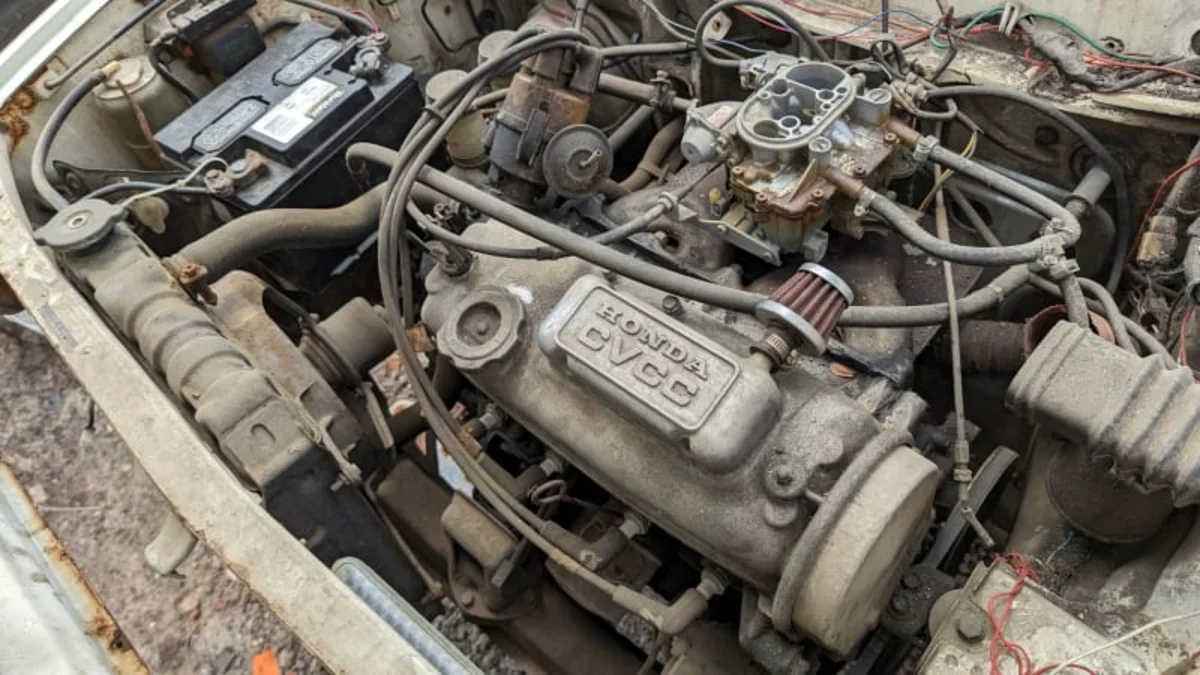
The CVCC engine first appeared as an optional Civic powerplant for the 1975 model year. Because its stratified-charge design made it run so clean compared to ordinary engines, the early CVCC engine didn’t need a catalytic converter and therefore didn’t require (more expensive at the time) unleaded gasoline. This one was a 1.5-liter rated at 60 horsepower and 76 pound-feet, way better than the base non-CVCC 1.2 and its 50 horsepower. The ’76 hatchback scaled in at a flyweight 1,708 pounds (well over a half-ton less than the current Civic), so 60 horsepower made it fairly quick by the lax standards of its era.
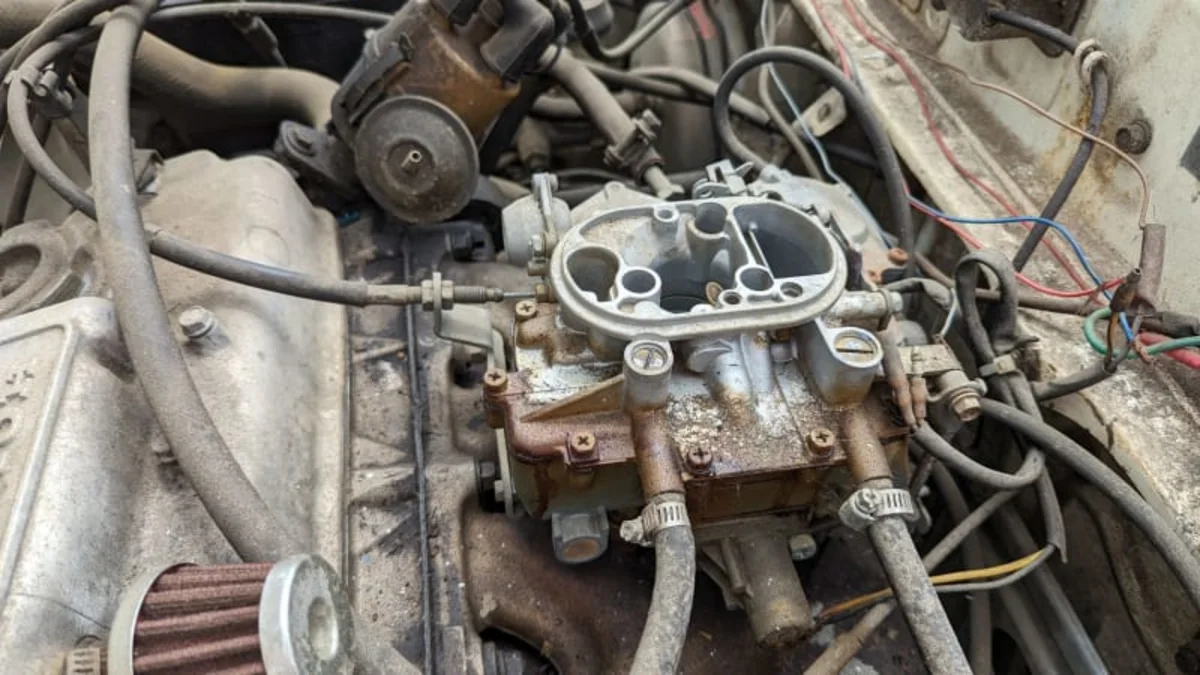
The CVCC design used secondary combustion chambers that got a rich fuel mixture that was easy to ignite, connected to larger combustion chambers that got a lean mix. To make this work, the carburetor used a complex two-in-one design that worked very well during the CVCC’s early years but eventually became terrifyingly complex as the entire fuel-delivery system evolved to meet the emissions standards of a decade later. We should all be thankful for modern electronic fuel injection.
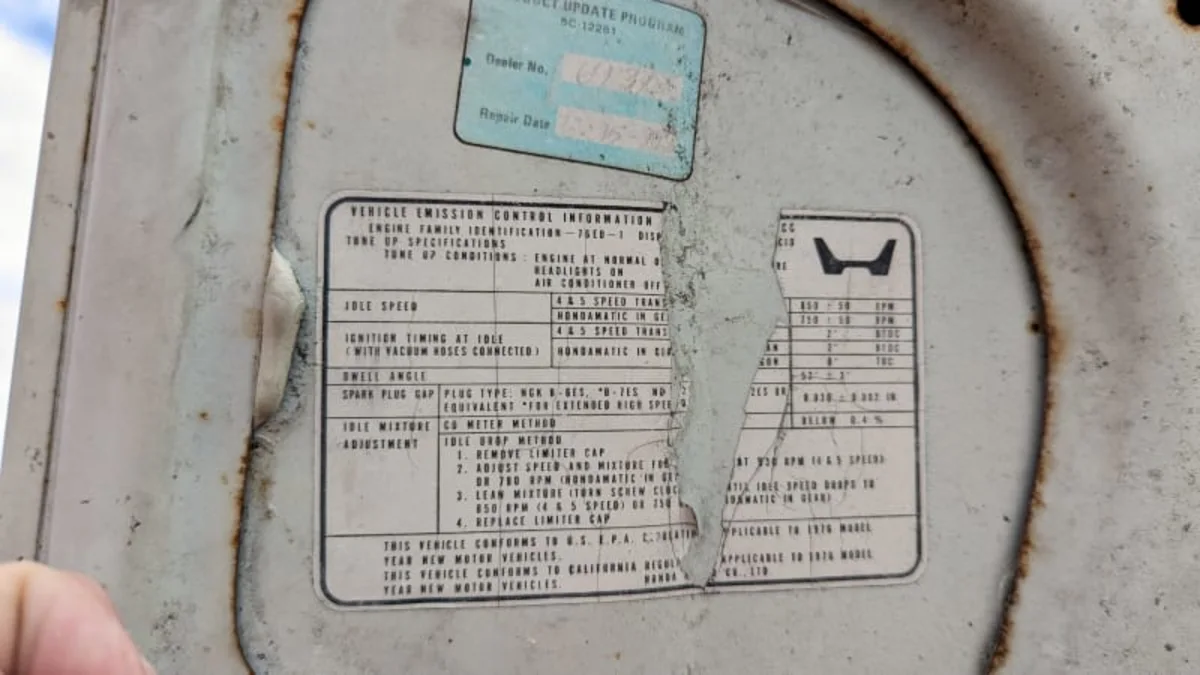
This car was California-legal when new, though the non-CVCC cars weren’t sold in the Golden State in 1976.
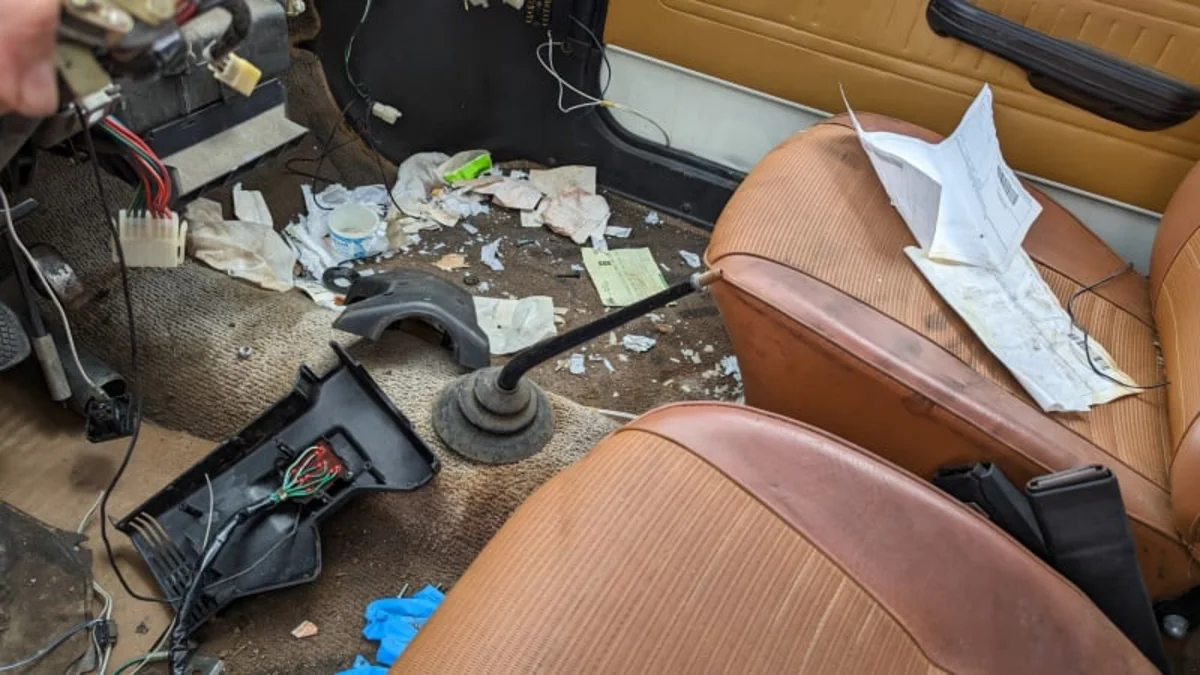
The ’76 Civic hatchback could be had with the base four-speed manual transmission, an extra-cost five-speed manual, or the optional sorta-two-speed, sorta-automatic Hondamatic, which was derived from motorcycle technology. This car has a manual.
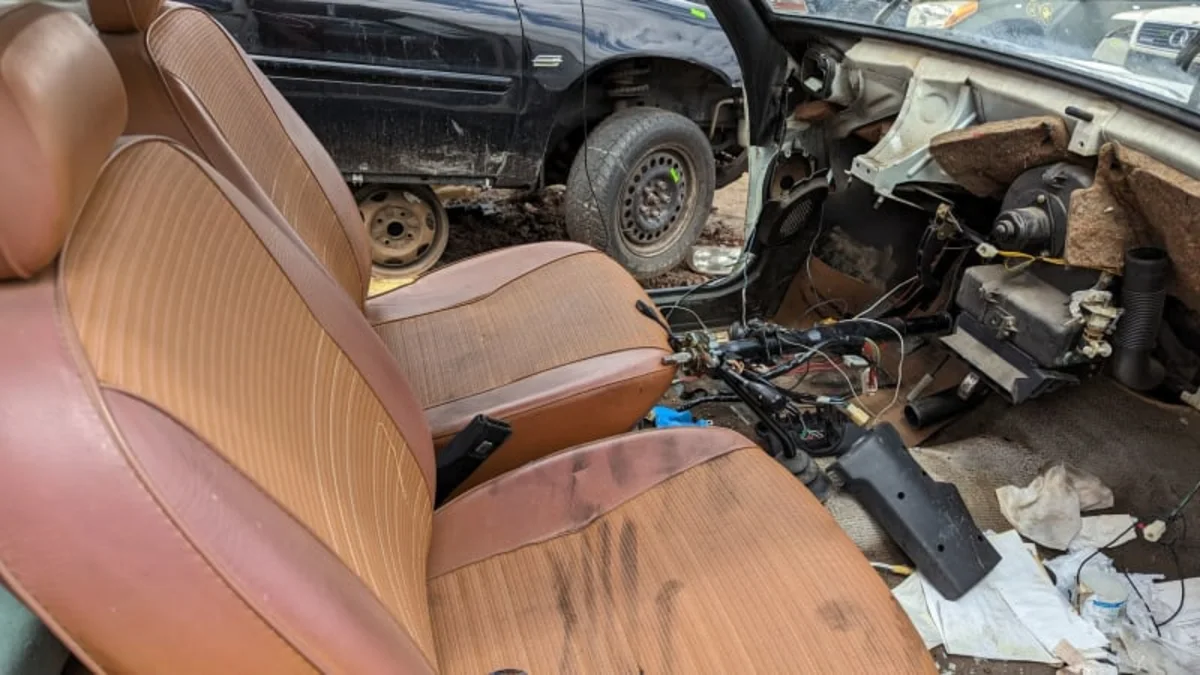
This one seems to have been in decent shape when it arrived here, with no serious rust and an interior that must have been nice enough before the junkyard vultures started plucking away parts.
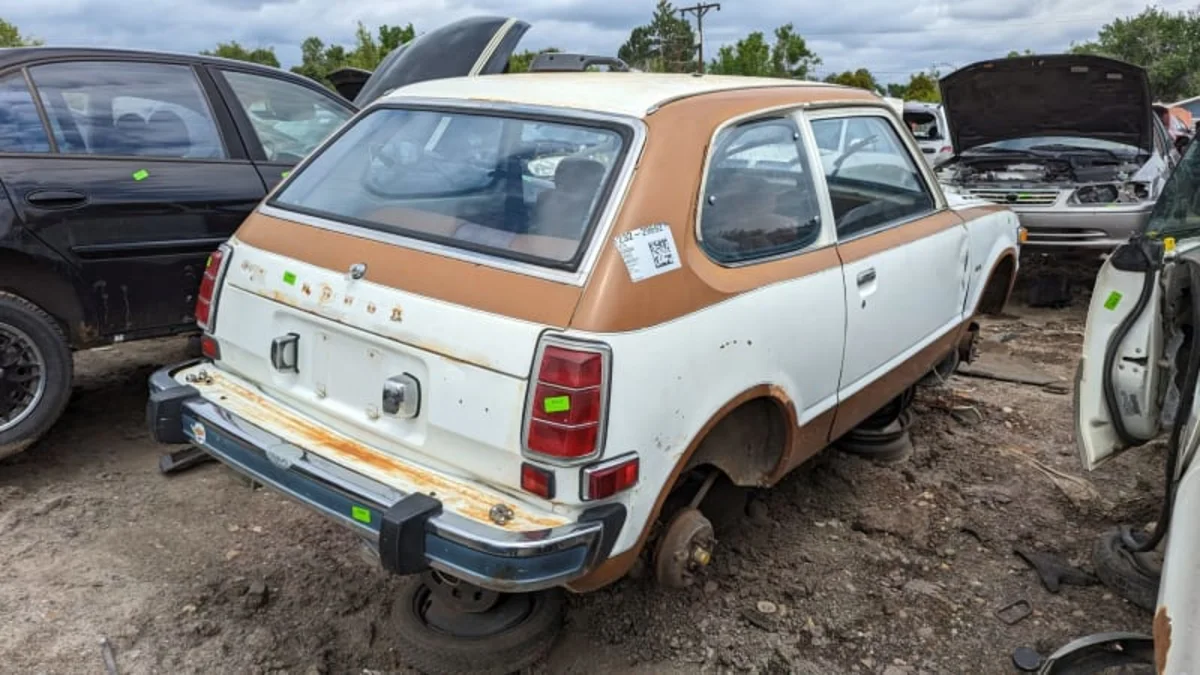
The two-tone paint job with pinstripes must have looked sharp when this car was new.
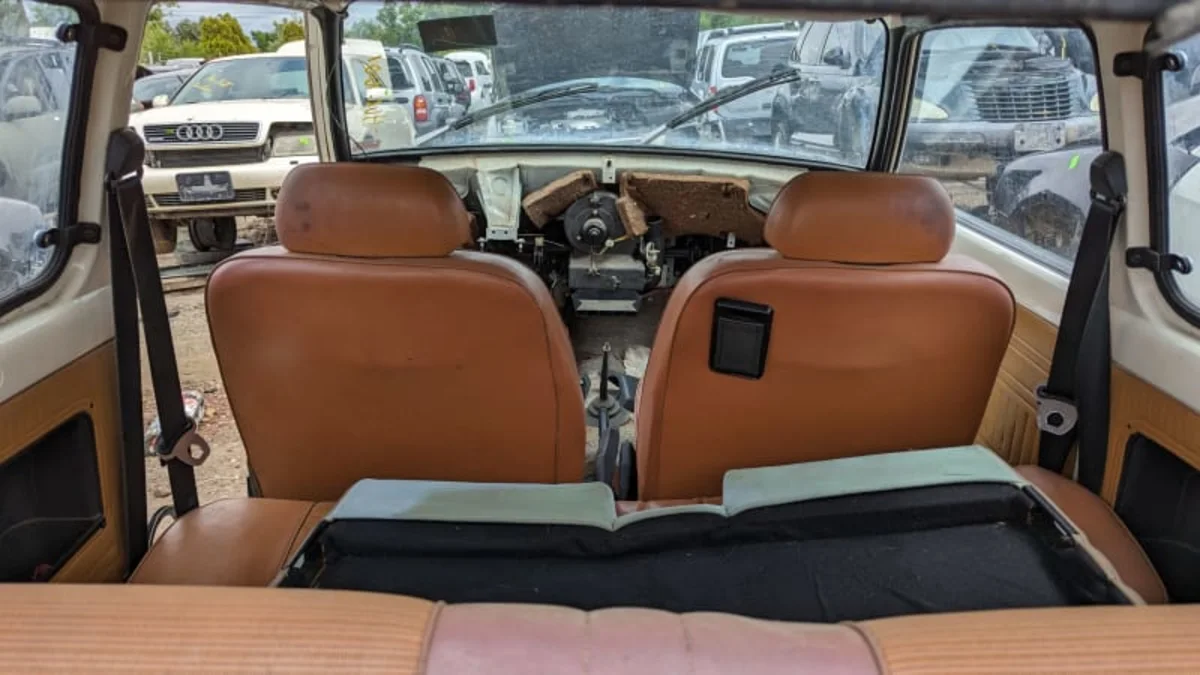
The MSRP for a 1976 Civic CVCC hatchback was $3,189, or about $17,444 in 2023 dollars, while the base Civic two-door sedan was $2,729 ($14,927 now). The cheapest possible new Toyota Corolla two-door sedan was $2,789 ($25,256 today) in 1976, while a Datsun B210 two-door cost $3,084 ($16,869 after inflation) and a Mitsubishi-built Dodge Colt two-door was $3,175 ($11,367). For the brave import shoppers, there was the Fiat 128 two-door at $2,998 ($16,399) and base Subaru two-door at $2,899 ($15,857).
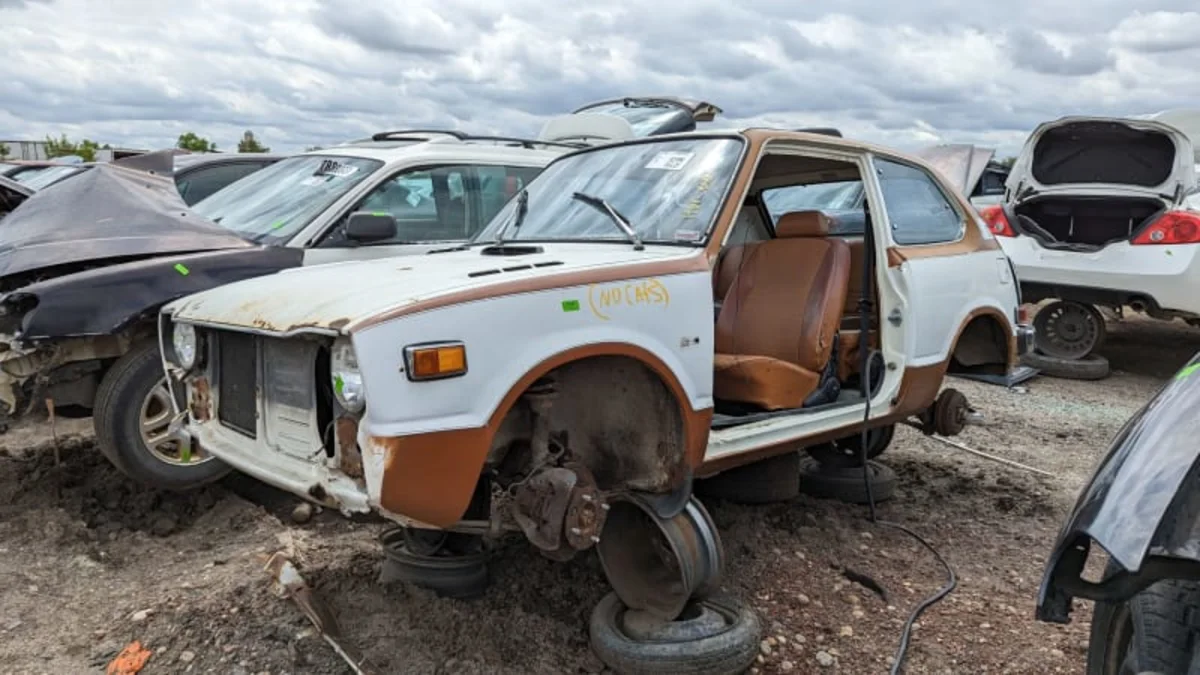
So many affordable car choices during the Bicentennial year! Detroit would sell you a Chevy Vega sport coupe for $2,984 ($16,322), a Chevette Scooter for $2,899 ($15,857) or a Ford Pinto MPG sedan for $3,025 ($16,546). Kenosha offered its cheapest AMC Gremlin for $2,898 ($15,852), which was a lot of car for that kind of money. At least in terms of choices in new cheap wheels, the Malaise Era beats 2023.
43 highway miles per gallon.
Leave the unleaded-only and diesel cars for non-CVCC-driving suckers!
Related video:







